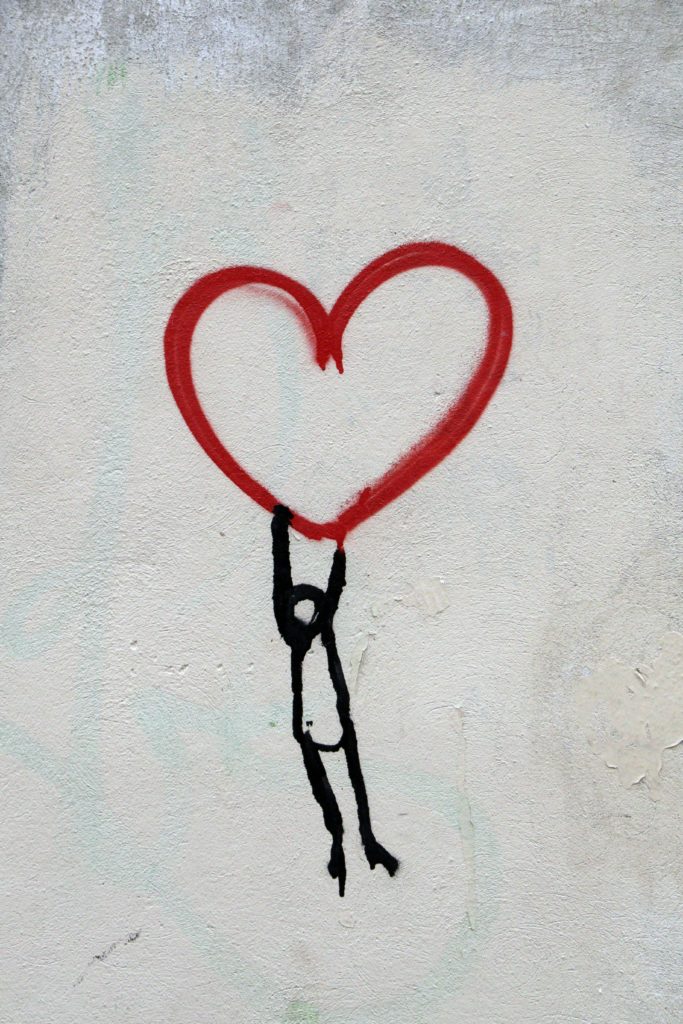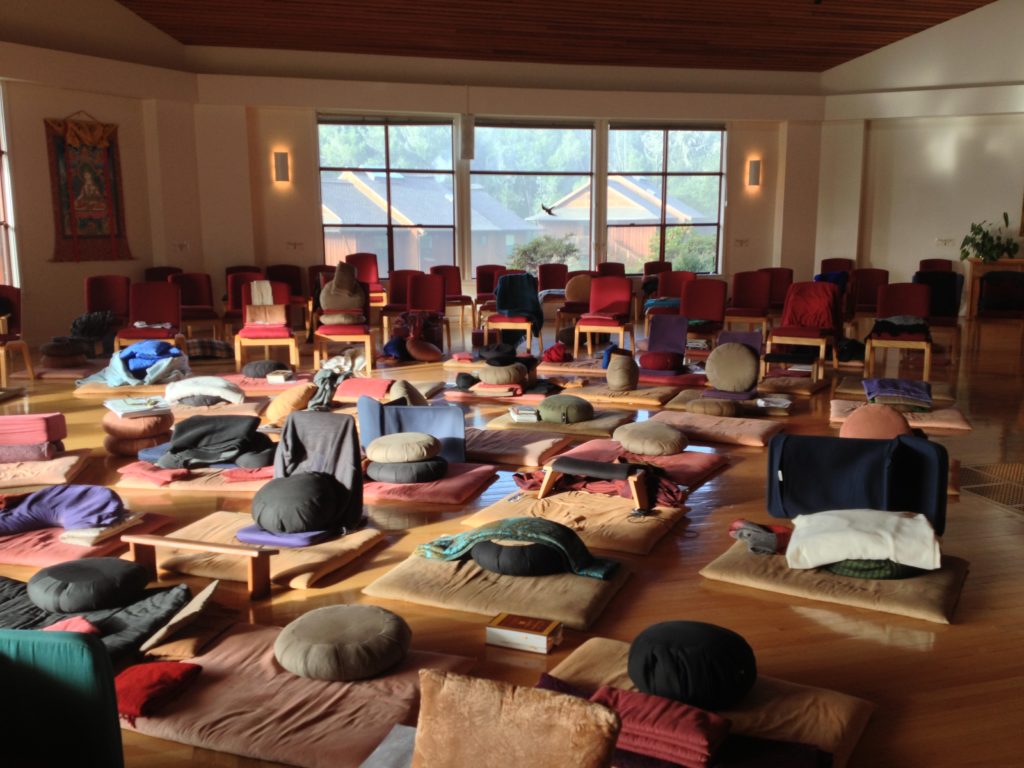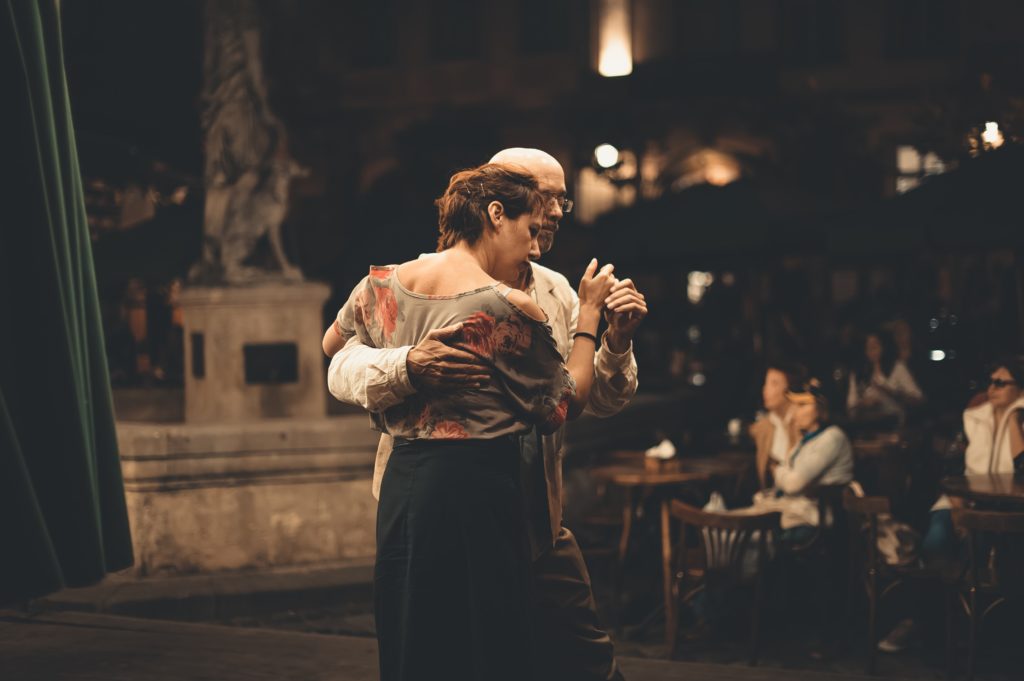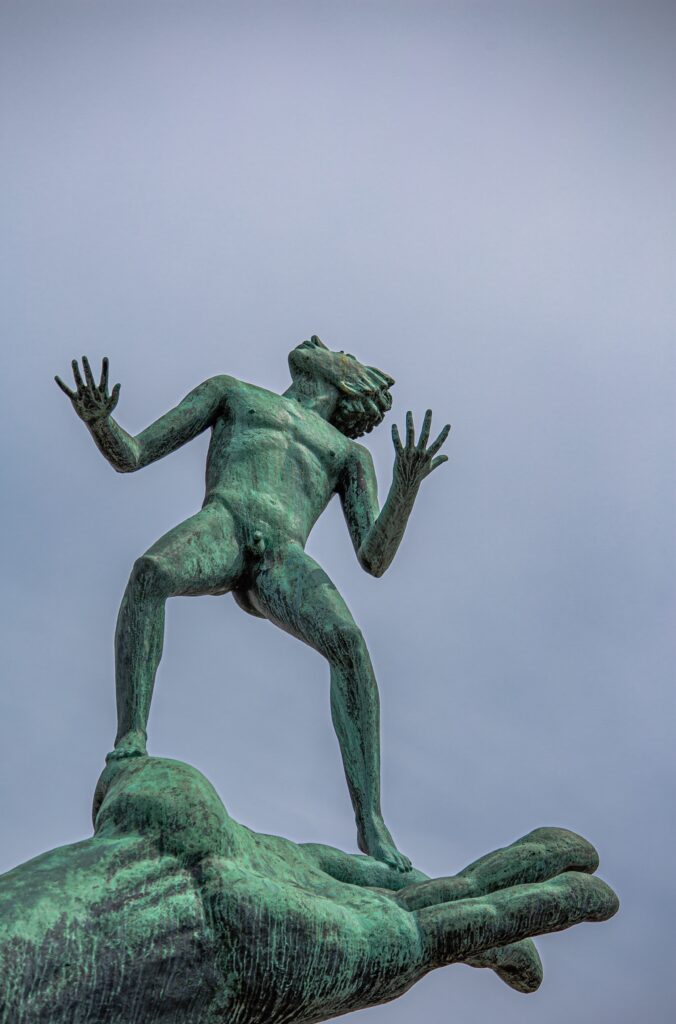Starting with the Physical Body
I will be sitting a Nine Bodies Insight Retreat next week so I won’t be able to lead the Tuesday Night Insight group that meets June 22 (on Zoom, 7:00pm to 8:30pm Central Time). The group will still meet and practice together however, using a guided meditation recorded by Phillip Moffitt in the Nine Bodies Insight style of practice.
The recording is titled: “Physical & Vital Bodies Guided Meditation & Reflection,” August 2020. You can find it — and many more — on the Nine Bodies website.
If you’d like to join the group next Tuesday just email me here. All are welcome.
***
Photo by Håkon Grimstad on Unsplash
Metta for One’s Body

I’m having knee replacement surgery on Nov 9 so I won’t be able to lead the Tuesday Night Insight group on Nov 10. But the group will still meet, using Anushka Fernandopulle’s guided meditation: Metta for One’s Body.
If you’d like to participate, send me an email here (by Nov 8) and I’ll send you a link.
***
Photo by Vanessa Kintaudi on Unsplash
Soothing Nervous Energy

I’ll be attending Phillip Moffitt’s retreat on the Nine Bodies next week so I won’t be able to lead the next Tuesday Night Insight group.
But the group will still meet — on Zoom, Aug 11, from 7:00 to 8:30 pm Central Time — and will practice using Ajahn Sucitto’s guided meditation with instructions for: Soothing Nervous Energy through Breathing and Body. (24 min)
Send me an email here if you’d like to attend and I’ll send you the Zoom link.
***
Photo by Priscilla Du Preez on Unsplash
Attention: Broad and Open, Like a Loop

I won’t be leading DharmaTown’s Tuesday Night Insight Group next week (June 2) because I’ll be attending Phillip Moffitt’s Nine Bodies retreat (May 28-June 4) as part of my teacher training.
But the group will still meet and meditate (on Zoom), using Ajahn Sucitto’s Body Sweeping meditation. (This guided meditation is 32 minutes long with intermittent periods of silence. Click here to listen.)
Sucitto writes: “Body sweeping meditation encourages attention that gathers around an object. Rather than absorbing into phenomena, attention remains broad and open, like a loop.”
Email me here for the NEW Zoom link for DharmaTown’s Tuesday Night Insight Group, which meets every Tuesday from 7:00 to 8:30 pm. The link will be good June through August.
I’ll be back to lead the group again on June 9.
***
Photo by Daria Shevtsova on Unsplash
We Practice to Steady the Heart

I won’t be leading the Tuesday Night Insight meditation group next week (April 28) because I’ll be attending Phillip Moffitt’s Nine Bodies online retreat (April 26 to April 30), but the group will still meet and meditate using Jack Kornfield’s 13-minute guided meditation: A Steady Heart in the Time of Coronavirus.
Email me here for the Tuesday Night Insight Zoom link. I’ll be back to lead the group again on Tuesday, May 5.
***
Photo by Nick Fewings on Unsplash
Tuesday Night Insight now on Zoom

A lot has changed since I left at the end of February for six weeks of retreat and training (more than half of which ended up being held on Zoom)!
But what DIDN’T change was the need for connection, kindness, and mutual support. So I hope you will join me, Jan Rosamond, as I lead Tuesday Night Insight — now on Zoom — every Tuesday 7:00 to 8:30 pm.
*** Email me here for the Zoom link to Tuesday Night Insight.***
Each week we’ll start promptly with a brief check-in, then I’ll talk for a bit about the practice and how it can support us in difficult times like these. I’ll also lead a guided meditation that will last about 30 minutes, then open for questions and discussion.
On the few Tuesdays when I will not be able to lead, I’ll select a guided meditation recorded by one of the teachers I’ve sat with on retreat (like I did here when I was away on retreat) and I’ll post it on DharmaTown so an alternate host will be able to play it for the group.
If you’d like more information, please email me here. Hope to see you soon!
***
My teaching credentials:
I am a certified Community Dharma Leader with five years of formal training through Spirit Rock Meditation Center. I’ve practiced in the Western Insight (Vipassana) tradition for more than 20 years with a variety of teachers including Jack Kornfield, Joseph Goldstein, and Sharon Salzberg, and I have completed more than 500 nights of silent retreat including several 1- and 2-month intensive retreats in the U.S., South Africa, and Burma (Myanmar). My mentoring teachers are Phillip Moffitt and Mirabai Bush.
***
For the Next Six Tuesdays…

Tomorrow night (Feb 25), I’ll lead the Tuesday Night Insight group as usual, but for the next six Tuesdays I’ll be away on retreat at Spirit Rock. (Where I took this photo during a previous retreat.)
Update: The Tuesday Night group will not meet during the Coronavirus crisis. Instead many will be listening — from home — to selected recorded meditation instructions and/or talks from senior teachers who’ve taught at Spirit Rock. Here’s the schedule:
Tuesday, March 3
Joseph Goldstein: “There is a Body”
Meditation lasts 34 minutes.
Want more? Click here to listen to Joseph’s reflects on Mindfulness of Knowing. (16 minutes)
Tuesday, March 10
Phillip Moffitt: “Earth to Wind; Stillness to Movement”
Meditation lasts 40 minutes. The instructions are intermittent, with several periods of silence. This is followed by about 5 minutes of additional reflection on the Dharma. Stop the tape at about the 45-minute mark. (The final 9 minutes of the tape are logistical announcements that you don’t need to listen to.)
NOTE: There’s quite a bit of noise at the start, so begin tape at 0:40.
Tuesday, March 17
Thanissara: “Working with Patterns of Mind”
Meditation lasts 39 minutes.
This is a talk/guided meditation for working with difficult thoughts and emotions. (Not a lot of silence.)
NOTE: There’s a brief amount of noise at the start of the tape.
Tuesday, March 24
Jack Kornfield: “Guided Meditation with Sound”
Meditation lasts 25 minutes.
In these instructions, Jack uses a variety of bells and the spoken word.
Want more? Click here for Jack’s talk on Finding the Amazing Joy of Living, Renewed in Mystery. (35 minutes)
Tuesday, March 31
Sharon Salzberg: “Real Happiness Introduction and Guided Meditation, Part 1”
Meditation lasts 25 minutes.
Want more? Click here for Real Happiness, Part 2 — Sharon speaking on mindfulness practice and walking meditation. (33 minutes)
Tuesday, April 7
Spring Washam: “Morning Instructional Sit”
Meditation instructions last 10 minutes (followed by 30 minutes of silence, then retreat announcements. Stop the tape at the 30-minute mark.)
Want more? Click here for the Wisdom of Inclusion — Opening the Heart to All Beings. (30 minutes)
NOTE: There are microphone problems in the beginning of the instruction tape, so start at 0:1:30.
***
I’ll be back on Tuesday, April 14. Hope to see you then!
Awareness Is Untouched by What It Is Aware Of

At this week’s Tuesday Night Insight, we’ll be working with the Third Insight — the “knowing that you know” — of the First Noble Truth (that “suffering is an unavoidable reality of ordinary human existence.”)
Here’s the text I’ll be referencing:
“Using mindfulness in working with the Third Insight means that you practice consciously shifting your awareness, both on the meditation cushion and in daily life.
“For instance, if you experience pain in your back during sitting meditation, concentrate your attention not on the physical stimulus or even your experience of the pain itself, but rather on your awareness of the pain. If you become fearful upon hearing some bad news at work, shift your focus away from the bad news toward recognition of the anxiety it provoked in you.
“In other words, instead of just being aware that the mind is experiencing suffering around an event, notice that the knowing of it is independent from the experience itself…
“So when you start to feel something unpleasant and out of habit begin to make up a story about why this feeling has arisen, stop and say to yourself, ‘Oh, I recognize this. This is dukkha (the First Insight). Back pain (or fear or anxiety, etc.) feels like this’ (the Second Insight). Then place your attention on the awareness that knows this is dukkha (the Third Insight).
“You will quickly notice that this awareness is untouched by what it is aware of, regardless of whether it is pleasant or unpleasant. It is simply there, knowing that it knows. Note, however, that this knowing is not removed from or indifferent to the experience; rather, it offers you an expanded perspective on the experience. It opens you to the awareness of the awareness itself. The Buddha was very clear on this point: Every experience is to be known from within the experience, not as a removed, outside observer.
“Eventually, a felt sense of knowing that you know arises. It is ineffable, fleeting at first, and often you lose your sense of it. Sometimes you don’t even remember that this is a possibility. But with persistence, the awareness returns and so lights up this very moment…
“You may feel it as a sigh of relief, or as a weight being lifted in the midst of having a difficult time. You may feel it as a sense of heightened awareness, particularly if it is a joyful moment, and you can really feel the preciousness of that moment as wonderful yet transient. Or you may feel it as a general sense of connectedness, or a sense of presence, that you are showing up for your own life. But one thing is for sure: When you know that you know, you know it!”
***
Text from Dancing with Life, by Phillip Moffitt
Photo by Daniel Hansen on Unsplash
You Learn What to Pay Attention to

At tomorrow’s Tuesday Night Insight we’ll continue our discussion on the practice of mindfulness in daily life and how formal meditation helps support that practice. Here’s the text I’ll be referencing:
“Suppose someone at work says something that upsets you and you become angry or defensive and react by saying something you later regret. The incident ruins your day because you can’t stop thinking about it. Of course you are aware of your feelings; they have registered in your brain. But this kind of ‘ordinary awareness’ — simply being conscious of your emotional reaction to an experience — is not what the Buddha meant by mindfulness.
“Mindfulness enables you to fully know your experience in each moment. So when your colleague upsets you, if you are being mindful, you witness that her words generate thoughts and body sensations in you that lead to a strong emotion with still more body sensations.
“You have the insight that these feelings are being created by a chain reaction of thoughts in your mind. While this chain reaction is going on, you acknowledge how miserable it makes you feel. But instead of reacting with harsh words when you feel the impulse to speak unskillfully, you choose not to. Your mindfulness allows you not to identify with the impulses of your strong emotions or act from them.
“Moreover, because you witnessed the impersonal nature of the experience, you don’t get stuck in a bad mood for the rest of the day. It is an unpleasant experience, but you are not imprisoned by it.
“When you are being mindful, you are aware of each experience in the body and mind and you stay with that experience, whether it is pleasant or unpleasant, such that you see what causes stress and harm to you and another and what does not.
“It is truly possible to experience this wise awareness in your daily life, but you need to train yourself to do so, and mindfulness meditation is the most effective means to accomplish this. Through the practice of mindfulness meditation you develop your innate capacity to:
- Collect and unify the mind (at least temporarily)
- Direct your attention
- Sustain your attention
- Fully receive experience no matter how difficult
- Investigate the nature of experience in numerous ways
- Then let go of the experience, no matter how pleasant or unpleasant it may be
“… It is not unlike training the body and mind to play the piano, dance the tango, speak a foreign language, or play a sport. You learn forms in order to train the mind, in the same way that a pianist learns scales. You learn what to pay attention to in the same way a dancer learns to feel the music and to be aware of her body and her partner’s.”
***
Text from Chapter 2, “Mindfulness and Compassion: Tools for Transforming Suffering into Joy,” from Dancing with Life, by Phillip Moffitt
Photo by Maksym Kaharlytskyi on Unsplash
Do Not Demand That Your Suffering End

At tonight’s Tuesday Night Insight we will continue working with the First Noble Truth, in which the Buddha “proclaimed that suffering is an unavoidable reality of ordinary human existence that is to be known and responded to wisely…”
“In my experience,” Phillip Moffitt writes, “the First Noble Truth is truly noble. It contains the grand vision for how you can begin to live right now with more harmony, despite whatever difficulties arise in your life…
“You may not like undergoing this objective suffering and you may feel your share is unfair or too much. Still, your life’s difficulties are there for you to bear as best you are able. In practicing being with life just as it is, you still prefer that your suffering end and you act on that preference whenever possible.
“But most crucially you do not demand that your difficulties go away. Instead, you consciously and voluntarily carry your suffering, and in your acceptance of it you find meaning, what Ajahn Sumedho calls ‘the good of suffering.’
“Astonishingly, when you fully accept dukkha, you also discover distance from your difficulties. The way out of suffering is the way through. As Sumedho says, ‘To let go of suffering we have to admit it into consciousness.'”
***
Text from Dancing with Life, by Phillip Moffitt
Photo by Paul Hanaoka on Unsplash

